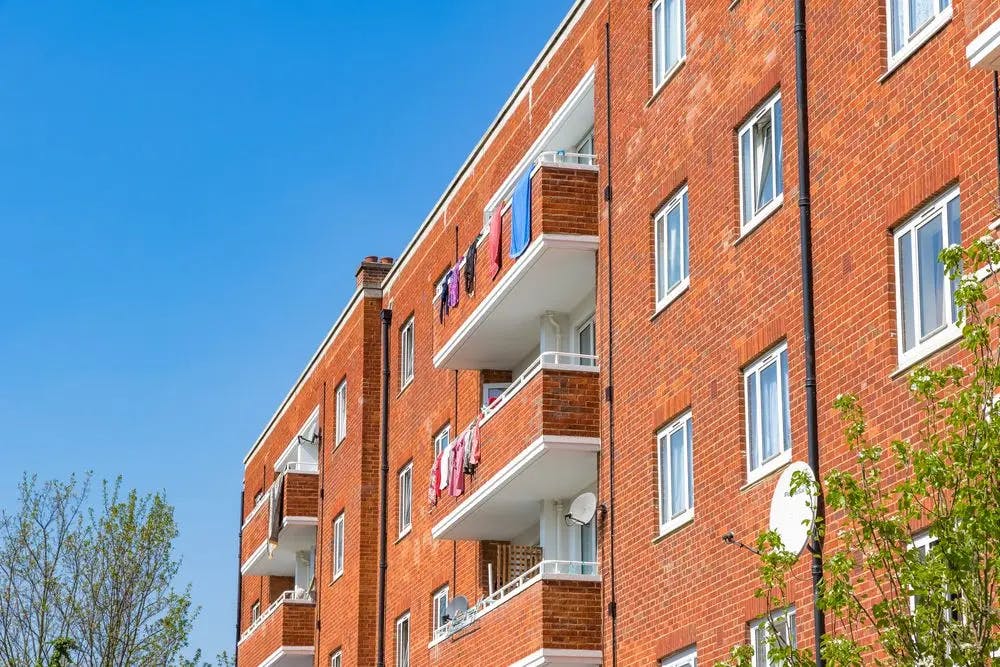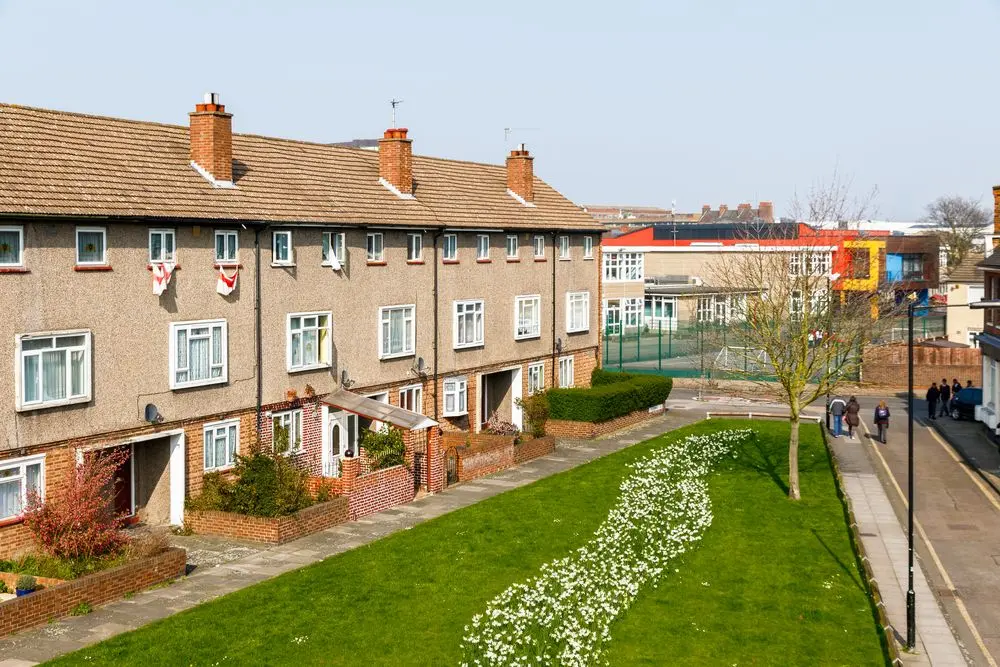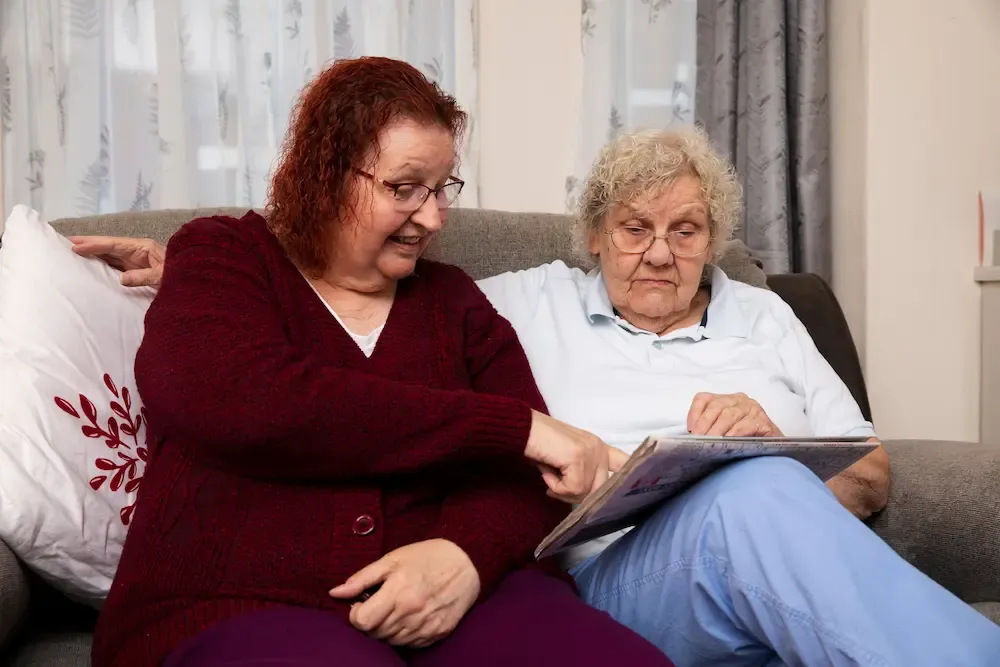Housing Benefit For Pensioners - Check If You’re Eligible

Estimated Reading Time: 9 minutes
Housing Benefit for pensioners provides financial assistance to older adults to help cover the cost of rent. This benefit - which is paid by your local council - ensures that pensioners, families and individuals across the country have access to safe and affordable housing.
Housing Benefit - which is available to eligible families and individuals - is being replaced by Universal Credit, but can still be claimed by people above the State Pension age, along with some people living in supported or temporary housing.
Where would you like to live?
Browse the best retirement homes near you through Lottie.
In this article:
- What is Housing Benefit?
- How much could you get?
- Are you eligible?
- How to claim
- What information do you need to provide?
- How is it paid?
- If there’s a change in circumstances
- Challenging a decision
What Is Housing Benefit?
Housing Benefit helps pay for your rent if you’re on a low income or claim certain benefits. You could be eligible for Housing Benefit if you’ve reached the State Pension age. If you live with your partner, you’ll both need to have reached the State Pension age to be eligible.
How much support you’ll get depends on a variety of factors and circumstances.
How Much Housing Benefit Could You Get?
Depending on your individual situation, Housing Benefit may be able to pay for some or even all of your rent. There’s no set amount of Housing Benefit you’ll receive.
You can use the GOV.UK benefits calculator to work out how much support you could be eligible for.
Something to be aware of is that if you receive the Guarantee Credit part of Pension Credit, you may be able to get your rent fully paid through Housing Benefit!
If you privately rent
If you privately rent, the amount of financial support you’re eligible for through Housing Benefit will depend on:
- Your ‘eligible’ rent*
- How many rooms are in your home
- Who you live with and your household income (this includes things like benefits, savings and pensions)
- Other circumstances (such as the age of any other people living in your home and whether any of them have a disability)
*When renting privately, your ‘eligible’ rent will either be your Local Housing Allowance rate or your actual rent, whichever is lower.
If you rent council or social housing
If you live in council or social housing, the amount of support you could get depends on:
- Your ‘eligible’ rent (your actual rent plus any service charges you have to pay, but not things like gas, electricity or water bills)
- Whether you have a spare room
- Your household income (this includes things like benefits, savings and pensions)
- Other circumstances (such as the age of any other people living in your home and whether any of them have a disability)

Does Housing Benefit for pensioners cover all your rent?
Housing Benefit will sometimes cover all your rent, but here are three examples of where it won’t:
- If you have a service charge to pay (such as property maintenance, additional care or meals)
- If your Housing Benefit is reduced because other people live with you (this is known as a non-dependant deduction)
- If you rent privately and pay a higher rental amount than what Housing Benefit can cover
Maximum Housing Benefit paid
The maximum amount of Housing Benefit you can receive is based on your eligible rent. This isn’t necessarily the same as the amount of rent you actually pay.
Many councils have a benefit cap in place which limits the total amount of benefits you can receive. However, these caps often don’t apply to people above the State Pension age, meaning pensioners aren’t limited as to how much Housing Benefit they could get.
For example, the benefit cap within Greater London is £23,000 a year if you’re in a couple or £15,410 if you’re a single adult. Brent Council state that you may not be affected by the benefit cap if you receive certain benefits or are above the State Pension age.
We can help you find the perfect UK retirement home. Use our free service to filter by location, price, the facilities available, purchase type and more!
Are You Eligible For Housing Benefit?
Housing Benefit is gradually being replaced by Universal Credit. As a result, you can only make a new claim if either of the following applies:
- You’ve reached the State Pension age
- You live in supported, temporary or sheltered housing
To be eligible for Housing Benefit, you must:
- Have a low income, be unemployed or claim benefits
- Have less than £16,000 in savings or receive the Guarantee Credit part of Pension Credit

If you live with a partner below the State Pension age
If you’ve reached the State Pension age but your partner is still below it (or vice-versa), you’ll be known as a mixed-age couple. When classed as a mixed-age couple, you’ll usually be unable to make a claim for Housing Benefit. The only exception to this is if you had an existing claim as a couple before the 15th of May 2019.
Instead, you should apply for Universal Credit. You may be eligible if you require financial support with paying your rent.
How To Claim Housing Benefit For Pensioners
Remember, if you or your partner are below the State Pension age and aren’t already claiming Housing Benefit, you can claim Universal Credit for financial assistance with paying your rent instead. Apply for Universal Credit.
There are two different ways of claiming Housing Benefit:
1. Through your local council
Your local council will often ask you to apply online. If you’d prefer, you can also call your local council and request a paper document to fill in.
Use GOV.UK to find your local housing benefit office.
2. Through the Pension Service
You can only apply through the Pension Service if you’re also applying for Pension Credit.
If you’ve reached the State Pension age and are on a low income, Pension Credit can be claimed to top up your earnings.
You can apply for Pension Credit online, or you can contact the Pension Service on 0800 99 1234.
When applying over the phone, there’s no need to fill in a form. Instead, the Pension Service will pass on your details to your local council. Your local council will then process your claim and contact you about any documents they require.
What Information Do You Need To Provide?
You’ll need to provide the following information:
- Who you live with
- Your income, savings and assets
- How much rent you pay
- Your private landlord or agent’s contact details
You’ll also be asked for supporting evidence. This evidence needs to comprise original documents, rather than copies. The supporting evidence you may be asked for includes:
- Proof of income and savings (such as your most recent bank statements and payslips)
- Proof of income for any non-dependants living with you (such as your friends or any adult relatives)
- A tenancy agreement or similar document from your landlord
You’ll usually have one month to provide this supporting evidence.
Finally, you’ll need to provide proof of your name and address, along with that of your partner. You may be asked for a:
- UK photocard driving licence
- Passport
- Birth or marriage certificate
- Permanent residence card
- Letter from HMRC or the Home Office
- Recent utility bill
- Recent bank statement
- Recent benefit award statement
How Is Housing Benefit Paid?
If you’re a private or housing association tenant, your Housing Benefit will likely be paid into your bank account. It may also be directly sent to your landlord. This will happen if you request it, if your local council believes doing this will help you, if you’ve accumulated at least eight weeks of rent arrears or if you have deductions from your Pension Credit for arrears.
If you’re a council tenant, your Housing Benefit will be paid directly into your rent account. This means you won’t receive any money, but the amount of rent you have to pay will be reduced. This money is usually paid into your rent account every four or so weeks.
You should receive Housing Benefit within two weeks of providing all necessary information and documentation to your local council.

Backdating Housing Benefit
If you’re above the State Pension age, your Housing Benefit will be backdated to whichever happened most recently:
- Three months before you applied
- When you reached the State Pension age
- The date you had to start paying rent
This happens automatically when you apply for Housing Benefit. As a pensioner, you don’t need to provide a reason for claiming late.
If There’s a Change in Circumstances
If there’s a change in circumstances that you think could affect your eligibility for Housing Benefit, you should contact your council and let them know.
A change could include:
- Your rent going up or down
- Your income going up or down (you may have started or stopped work, or the benefits you receive may have changed)
- Other changes affecting your savings, investments, property or pensions
- Moving house or into a care facility such as a care home
- People moving in and out of your home
Challenging a Housing Benefit Decision
Housing Benefit for pensioners is handled by your local council, so challenges or appeals are also carried out on a case-by-case basis.
If you’re unhappy with a Housing Benefit decision that’s been made, you should contact your local council and appeal this decision by following their appeals procedure.
We’re on a mission to support individuals and their loved ones throughout each stage of their later living journey. For more information, check out everything Lottie has to offer.
Frequently Asked Questions
How much Housing Benefit can a pensioner get?
The most Housing Benefit a pensioner can get is 100% of the rent they pay (the full amount) after services such as heating, lighting and water have all been taken out.
Who can’t claim Housing Benefit?
If your savings are above £16,000 then you usually won’t be eligible for Housing Benefit. The only exception here is if you receive the Guarantee Credit part of Pension Credit. You also won’t be eligible if you’re paying a mortgage on your own home, if you already claim Universal Credit or if you live with a partner who is already claiming Housing Benefit.
There are several other points of eligibility criteria as well.
How long can you stay on Housing Benefit?
Once you’ve been awarded Housing Benefit, you can continue receiving it indefinitely. However, your local authority will recheck your eligibility every so often.
An award of Housing Benefit will continue until you’re no longer classed as eligible, you fail to respond to a check about your eligibility or you become entitled to Universal Credit instead.
How do Pension Credits affect my Housing Benefit?
If you receive the Guarantee Credit part of Pension Credit, your income and savings aren’t taken into account, meaning you may be eligible to get your rent fully paid through Housing Benefit.
Free Care Fees & Funding Email Course
Written by our team of experts and designed to help families fund later life care in England.



